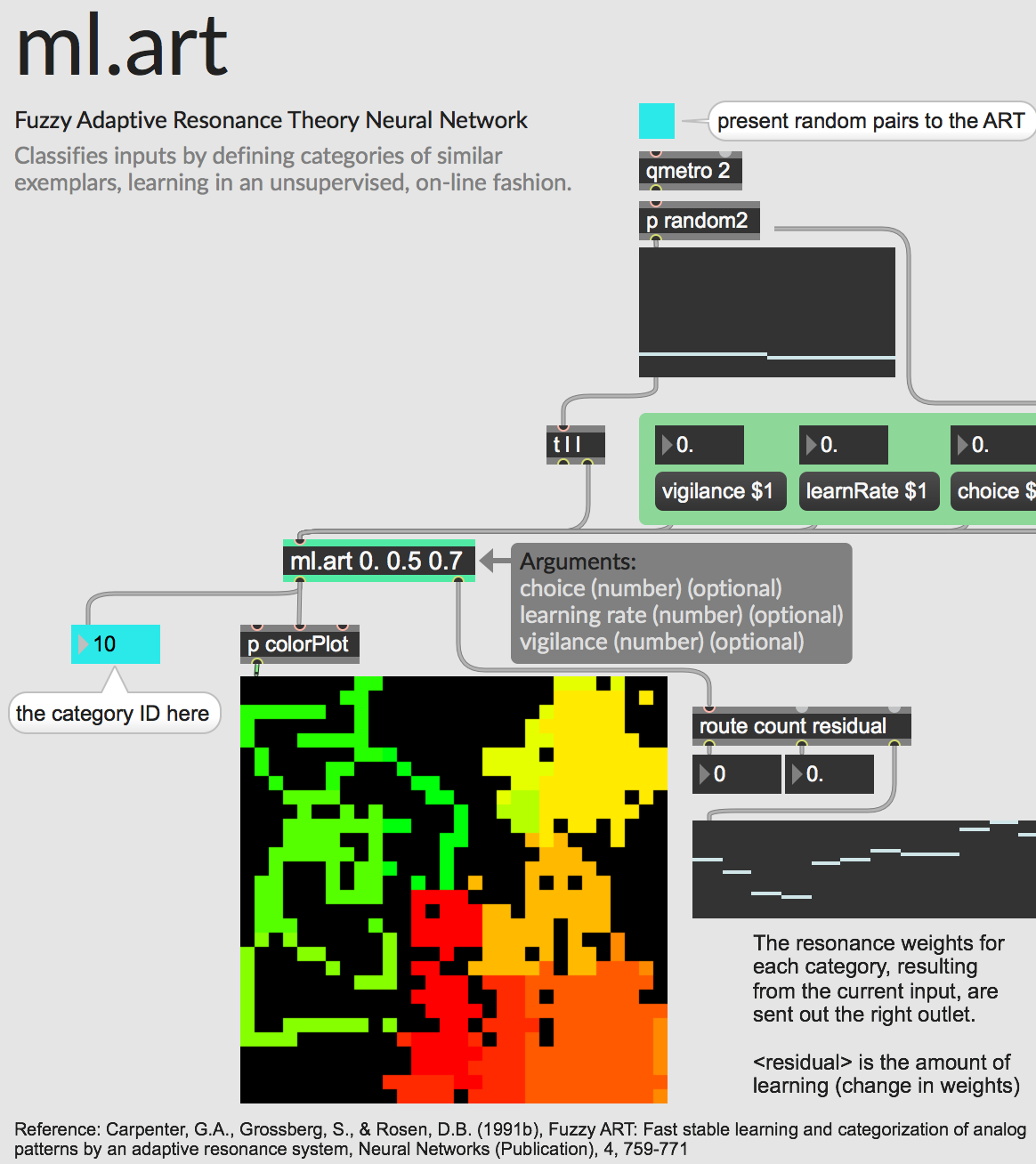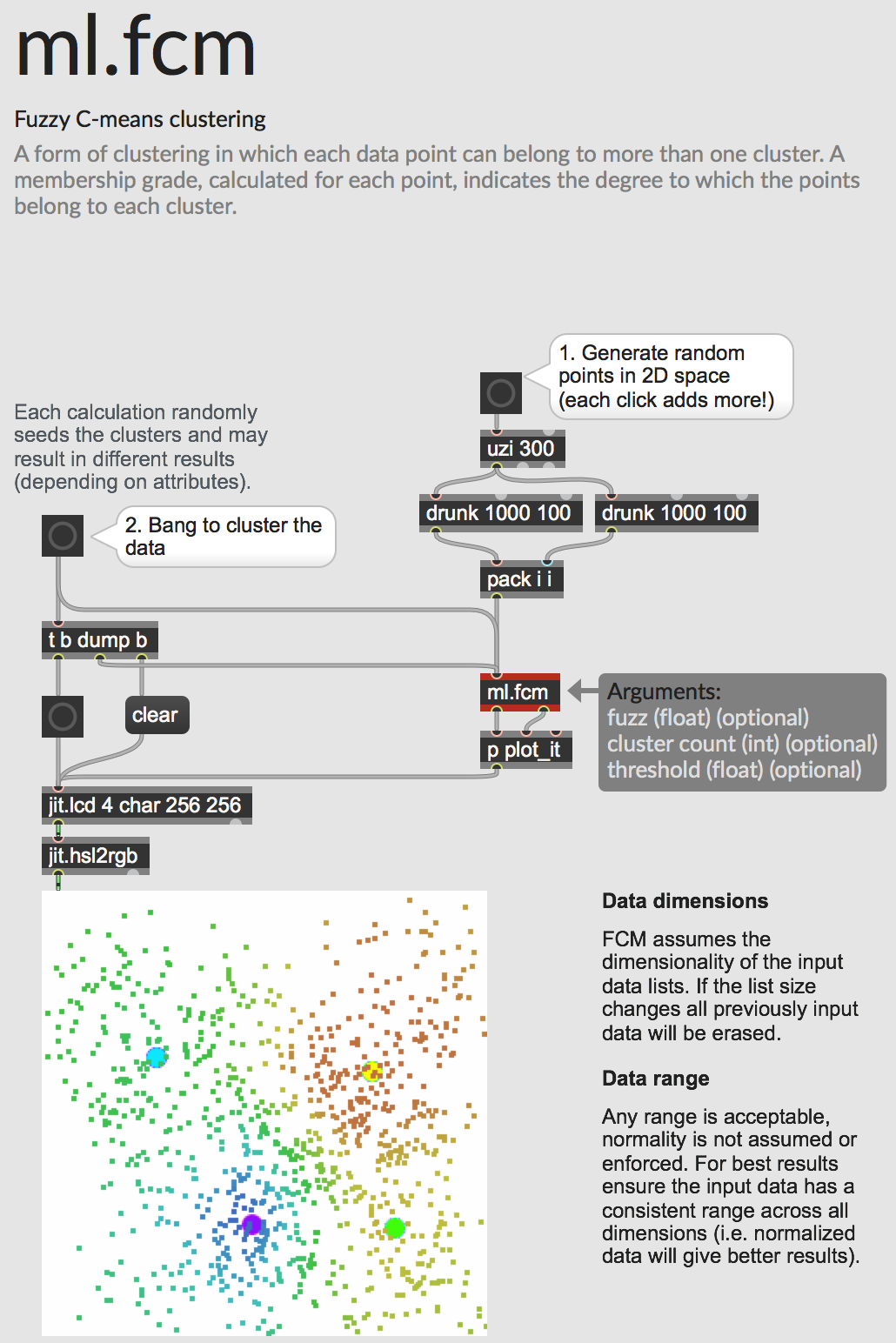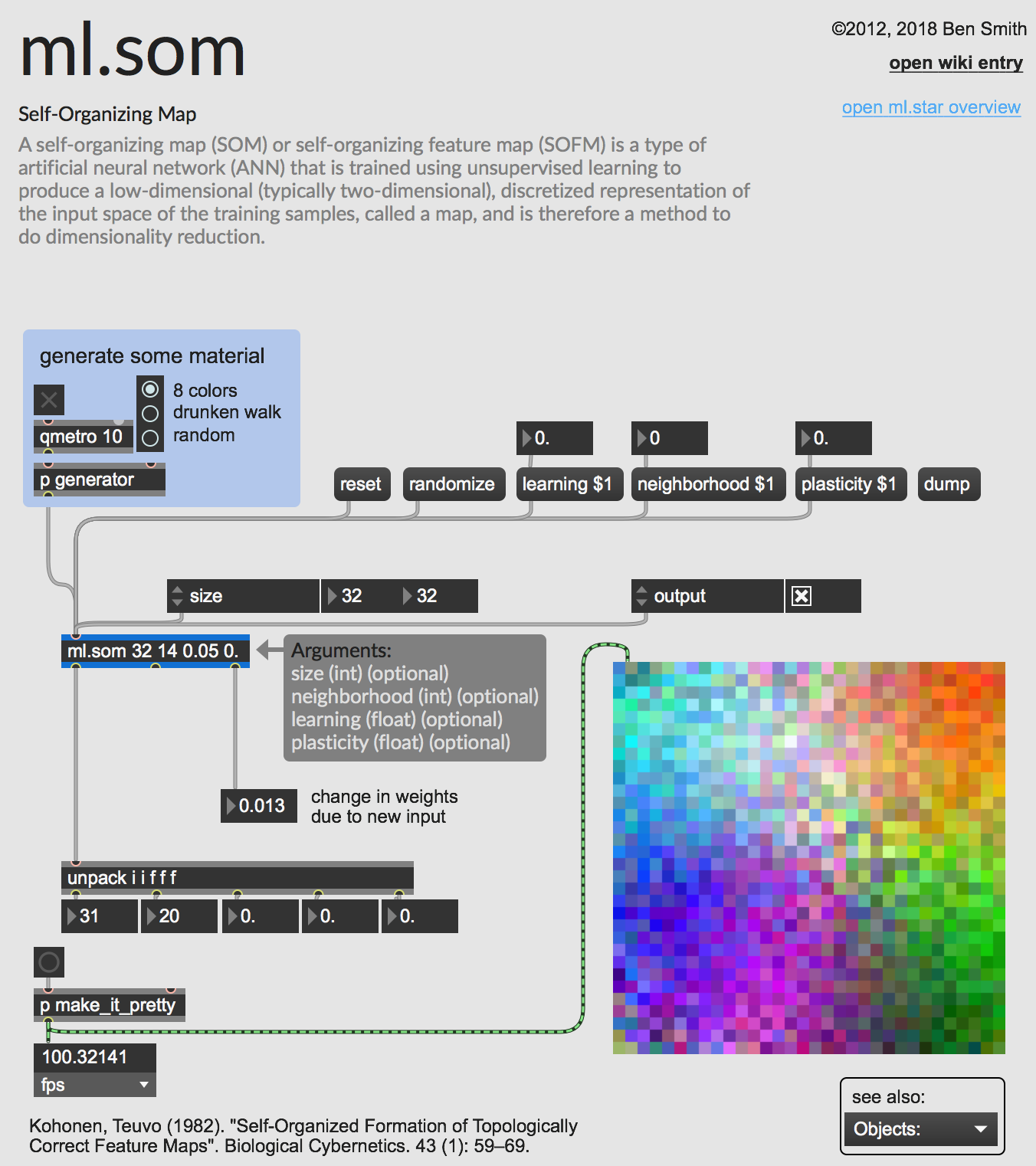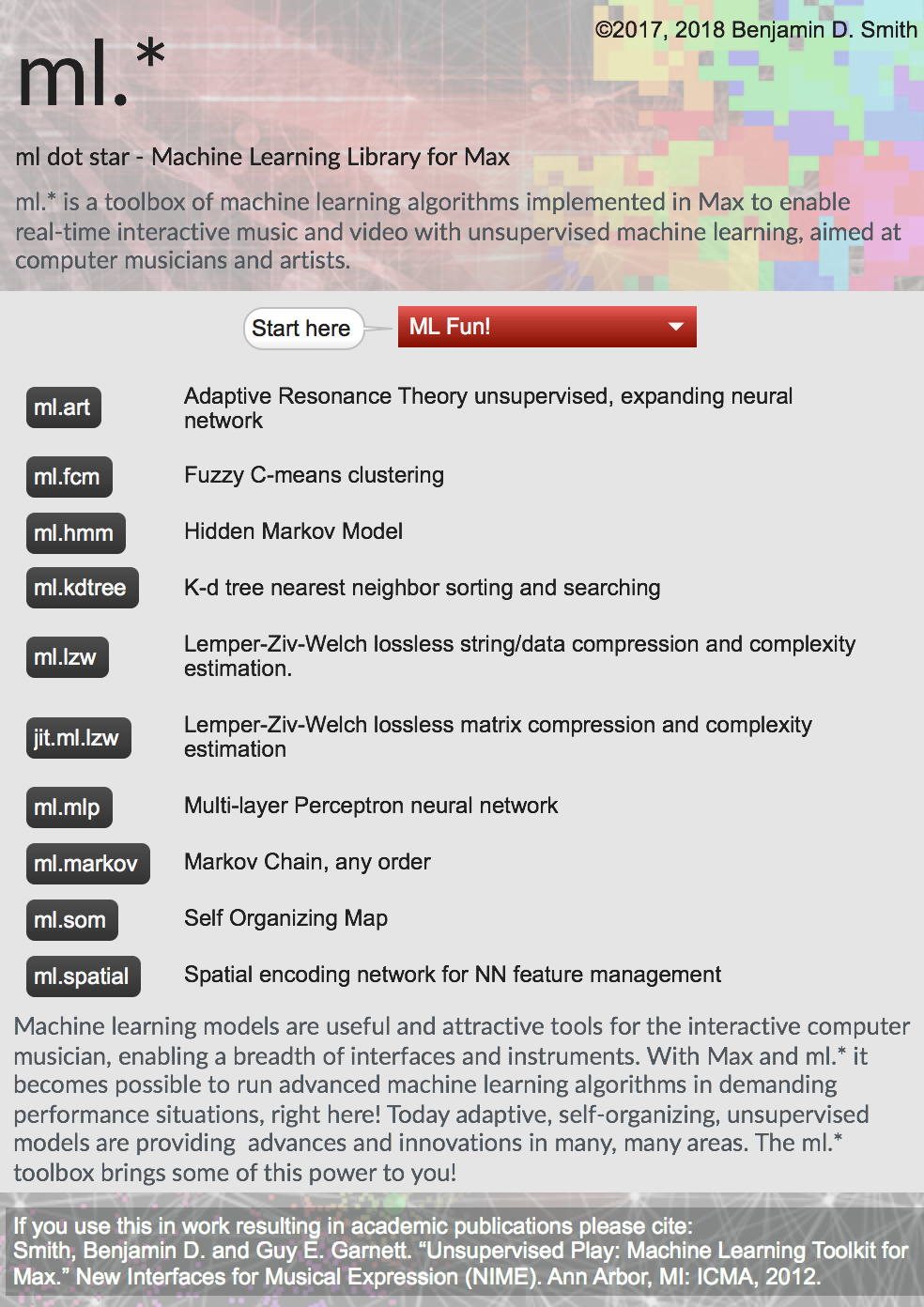Benjamin Day Smith
composer, musician, data scientist
ml.*
Machine learning toolkit for Max. As of December 2017, ml.star is available directly through the Max Package Manager. Available for Max and Windows, with help patches and 'tutorials'. Open up Max and you can download the machine learning externals and get started now!
Machine learning models are useful and attractive tools for the interactive computer musician, enabling a breadth of interfaces and instruments. With current consumer hardware it becomes possible to run advanced machine learning algorithms in demanding performance situations, yet expertise remains a prominent entry barrier for most would-be users. Currently available implementations predominantly employ supervised machine learning techniques, while the adaptive, self-organizing capabilities of unsupervised models are not generally available. The ml.star toolbox of unsupervised machine learning algorithms supports real-time interactive music and video, aimed at the non-expert computer artist.
The ml.* library contains several neural network models and supporting utility objects.
- ml.art - Adaptive Resonance Theory unsupervised, growing neural network
- ml.fcm - Fuzzy C-means clustering
- ml.hmm - Hidden Markov Model
- ml.kdtree - K-d tree nearest neighbor sorting and searching
- ml.lzw - Lempel-Ziv-Welch lossless string/data compression
- jit.ml.lzw - matrix version of ml.lzw
- ml.markov - Markov Chain, multi-order
- ml.mlp - Multi-layer Perceptron neural network
- ml.som - Self Organizing Map
- ml.spatial - Spatial encoding network for NN feature management
Use in non-commercial applications is highly encouraged. Use in commercial applications is by separate agreement with the author ONLY.
If you use any of these objects in an academic publication please cite the following paper:
Smith, Benjamin D., and Guy E. Garnett. "Unsupervised Play: Machine Learning Toolkit for Max." In Proceedings of the New Interfaces in Musical Expression (NIME). 2012.



